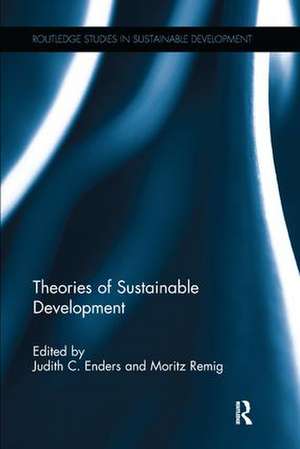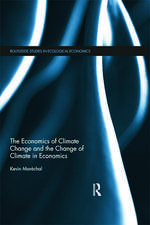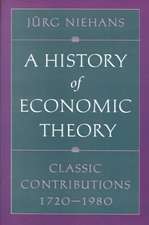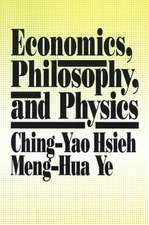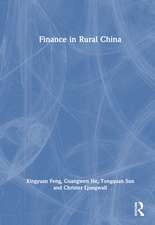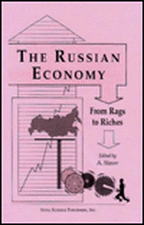Theories of Sustainable Development: Routledge Studies in Sustainable Development
Editat de Judith Enders, Moritz Remigen Limba Engleză Paperback – 14 dec 2016
This book offers an interdisciplinary collection of research articles on the theories of sustainable development, drawing on a wide range of subjects including history, politics, governance, complex systems, economics and philosophy. It advocates viewing sustainable development not only as the establishment of a permanent, globally practicable and future-capable mode of life and economics, but as a complex array of problems involving a wide range of social-scientific and humanistic disciplines. This innovative approach means that the book is oriented toward current problems, not toward the established academic boundaries, and it draws out lessons that are relevant for those studying and working in sustainability across the world.
This book will be of great interest to researchers and students of sustainable development and environmental politics, as well as practitioners working with sustainable development in politics, business, administration, and civil society organizations.
| Toate formatele și edițiile | Preț | Express |
|---|---|---|
| Paperback (1) | 479.96 lei 6-8 săpt. | |
| Taylor & Francis – 14 dec 2016 | 479.96 lei 6-8 săpt. | |
| Hardback (1) | 1108.37 lei 6-8 săpt. | |
| Taylor & Francis – 7 noi 2014 | 1108.37 lei 6-8 săpt. |
Din seria Routledge Studies in Sustainable Development
-
 Preț: 311.29 lei
Preț: 311.29 lei -
 Preț: 322.34 lei
Preț: 322.34 lei -
 Preț: 304.75 lei
Preț: 304.75 lei -
 Preț: 304.67 lei
Preț: 304.67 lei -
 Preț: 416.22 lei
Preț: 416.22 lei - 14%
 Preț: 300.46 lei
Preț: 300.46 lei -
 Preț: 371.68 lei
Preț: 371.68 lei -
 Preț: 333.09 lei
Preț: 333.09 lei - 16%
 Preț: 244.38 lei
Preț: 244.38 lei -
 Preț: 446.32 lei
Preț: 446.32 lei -
 Preț: 413.55 lei
Preț: 413.55 lei -
 Preț: 490.46 lei
Preț: 490.46 lei - 16%
 Preț: 273.65 lei
Preț: 273.65 lei -
 Preț: 484.47 lei
Preț: 484.47 lei -
 Preț: 369.77 lei
Preț: 369.77 lei -
 Preț: 392.24 lei
Preț: 392.24 lei - 12%
 Preț: 299.52 lei
Preț: 299.52 lei - 18%
 Preț: 997.93 lei
Preț: 997.93 lei - 18%
 Preț: 997.90 lei
Preț: 997.90 lei -
 Preț: 411.42 lei
Preț: 411.42 lei -
 Preț: 449.41 lei
Preț: 449.41 lei -
 Preț: 487.37 lei
Preț: 487.37 lei -
 Preț: 449.41 lei
Preț: 449.41 lei -
 Preț: 382.95 lei
Preț: 382.95 lei -
 Preț: 416.22 lei
Preț: 416.22 lei -
 Preț: 416.22 lei
Preț: 416.22 lei -
 Preț: 389.49 lei
Preț: 389.49 lei -
 Preț: 325.08 lei
Preț: 325.08 lei - 17%
 Preț: 270.41 lei
Preț: 270.41 lei - 18%
 Preț: 1055.51 lei
Preț: 1055.51 lei - 18%
 Preț: 1000.27 lei
Preț: 1000.27 lei
Preț: 479.96 lei
Nou
Puncte Express: 720
Preț estimativ în valută:
91.85€ • 95.54$ • 75.83£
91.85€ • 95.54$ • 75.83£
Carte tipărită la comandă
Livrare economică 14-28 aprilie
Preluare comenzi: 021 569.72.76
Specificații
ISBN-13: 9780415390255
ISBN-10: 0415390257
Pagini: 202
Dimensiuni: 156 x 234 x 11 mm
Greutate: 0.39 kg
Ediția:1
Editura: Taylor & Francis
Colecția Routledge
Seria Routledge Studies in Sustainable Development
Locul publicării:Oxford, United Kingdom
ISBN-10: 0415390257
Pagini: 202
Dimensiuni: 156 x 234 x 11 mm
Greutate: 0.39 kg
Ediția:1
Editura: Taylor & Francis
Colecția Routledge
Seria Routledge Studies in Sustainable Development
Locul publicării:Oxford, United Kingdom
Public țintă
PostgraduateCuprins
Foreword 1. Theories of Sustainable Development – an Introduction 2. The Discovery of Sustainability: The Genealogy of a Term 3. What Kind of Theory Do We Need for Sustainable of Development – And how Much of It? Some Thoughts 4. Theory of Sustainability? Considerations on a Basic Understanding of "Sustainability Science" 5. The Quality of Sustainability Science: a Philosophical Perspective 6. Transdisciplinary Humanistic Sustainability Theory: Justice, Governance, Blocks 7. Theories of "Sustainability" and the Sustainability of Theories: For Alternatives to the Mainstream, and against Simple Solutions 8. Sustainability and the Challenge of Complex Systems 9. Sustainable Development: A Global Model – Universal and Contextual 10. The Non-Identity Problem: An Irrefutable Argument against Representation fo Future Generations? 11. The Definition of Society’s Relationship with Nature on the Basis of Reproduction Theory – A Historical-Systematic Problem Sketch 12. The Missing Aspect of Culture in Sustainability Concepts 13. Ten Theses on a Research Agenda for Sustainable Development
Recenzii
"Theories of Sustainable Development is a Dense but always rewarding collection of cutting edge essays for advanced graduate students who deal with sustainable development, philosophy of justice, or sociology of science." – Yves Laberge, Electronic Green Journal
Descriere
The book presents a social sciences’ perspective on sustainable development contributing thus to transdisciplinary sustainability research, which means that it is oriented toward current problems, and not toward the established academic boundaries. The key aspect here is not the natural-scientific, but rather the humanistic aspect. This book advocates viewing sustainable development, not only as the establishment of a permanent, globally practicable and future-capable mode of life and economics, but rather as a complex array of problems, involving a wide range of social-scientific and humanistic disciplines – law, political science, sociology, economics, theology, psychology, philosophy.
